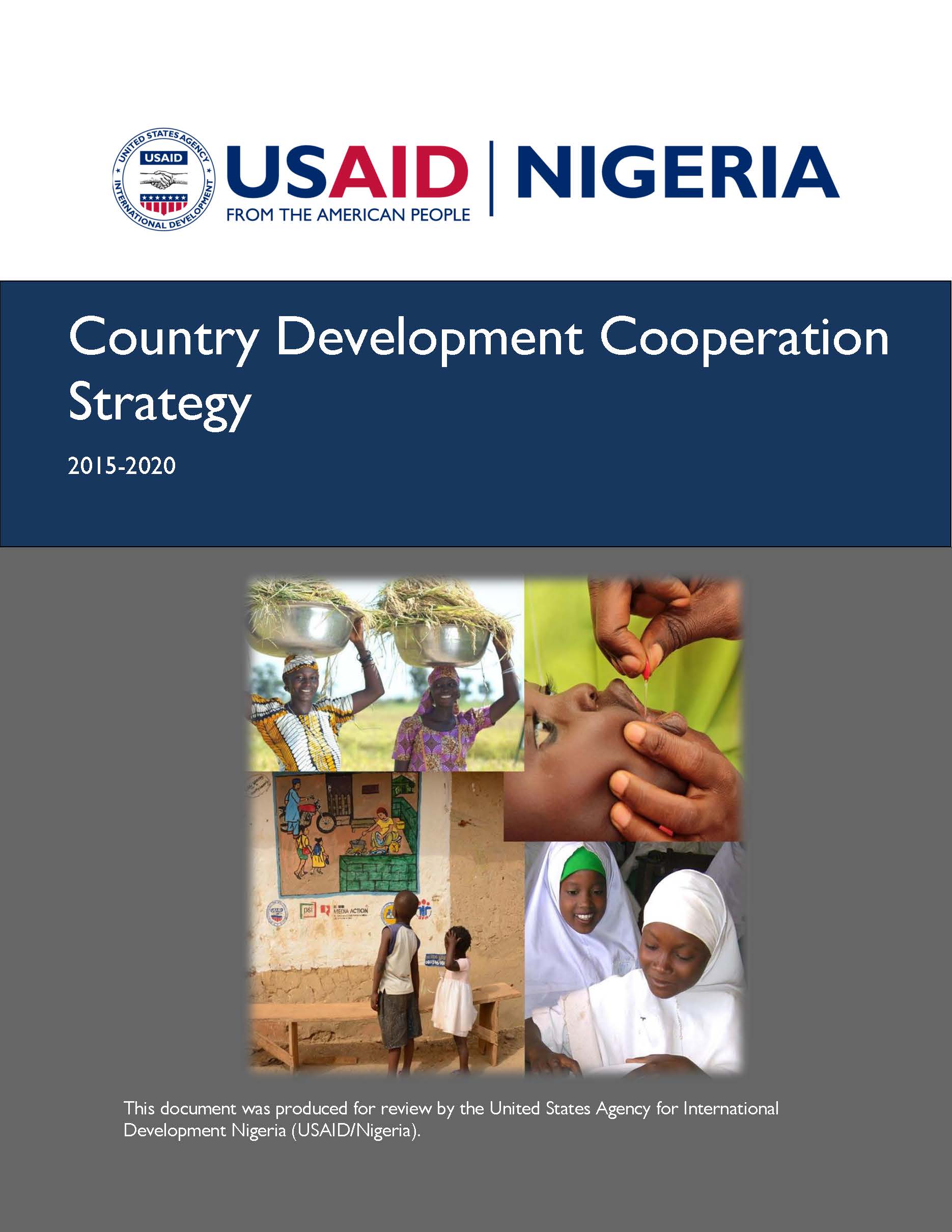In its 2015-2019 Integrated Country Strategy, the U.S. Government Mission in Nigeria identified four priority goals – improving governance, furthering economic development, enhancing stability, and expanding opportunity. In support of that vision, the USAID Mission has established its Country Development Cooperation Strategy goal as Reduced Extreme Poverty in a More Stable, Democratic Nigeria.
The goal will be pursued through three Development Objectives (DOs):
- DO 1: Broadened and inclusive growth
- DO 2: A healthier, more educated population in targeted states
- DO 3: Strengthened good governance
The CDCS goal and development objectives were shaped by the following considerations.
- Nigeria is relatively wealthy yet suffers from high levels of poverty. Nigeria has enjoyed robust economic growth over the past five years however this economic growth has not fostered significant reductions in poverty or income equality.
- Regional inequalities are evident across Nigeria. The overall picture of Nigeria reveals a northern region that is much poorer than the rest of the country and under-developed, and a relatively more wealthy, resource-rich south, with higher literacy rates, and better health indicators, yet a higher prevalence of HIV and higher levels of gender-based violence.
- Increasing the beneficiaries of economic growth is essential. Resolving bottlenecks to inclusive growth have prevented most Nigerians from benefitting from the country’s robust economic growth. Working with the private sector and the Nigerian government under the Feed the Future and Power Africa initiatives is central to this element of the strategy.
- Government provision of social services will contribute to economic growth and poverty reduction. The health and education portfolios will focus on strengthening service delivery, systems oversight, and leadership to encourage adequate resource allocation to meet health needs and save lives and to increase access to basic educational services and the necessary skills to be productive members of society.
- Strengthening democratic processes and governance and conflict mitigation will complement all aspects of the strategy. Since the significant policy and budgetary decisions made at the state and local levels of government most directly affect the lives of all citizens, the Mission will strive to strengthen these institutions’ capacity to administer elections, respond to citizen needs, and help mitigate conflict by increasing transparency and accountability of government and by fostering civic engagement.
- Humanitarian and transitional activities will continue in the northeast. These activities will be complemented by long-term development activities in northeastern Nigeria as conditions permit.
- Activities under this strategy will be focused and selective. The Mission’s interventions, except in certain cases, will not be nationwide. Additionally, the Mission will partner with reform-minded leaders at the state and local levels.
- Improved monitoring and evaluation will help improve outcomes. The Mission is committed to the Agency’s focus on monitoring, evaluation, and learning as demonstrated through its collaborating, learning and adapting agenda. This agenda focuses primarily on internal and external capacity building in order to exert a multiplier effect on the Mission’s development investments.
Read the full report [pdf]









Comment
Make a general inquiry or suggest an improvement.